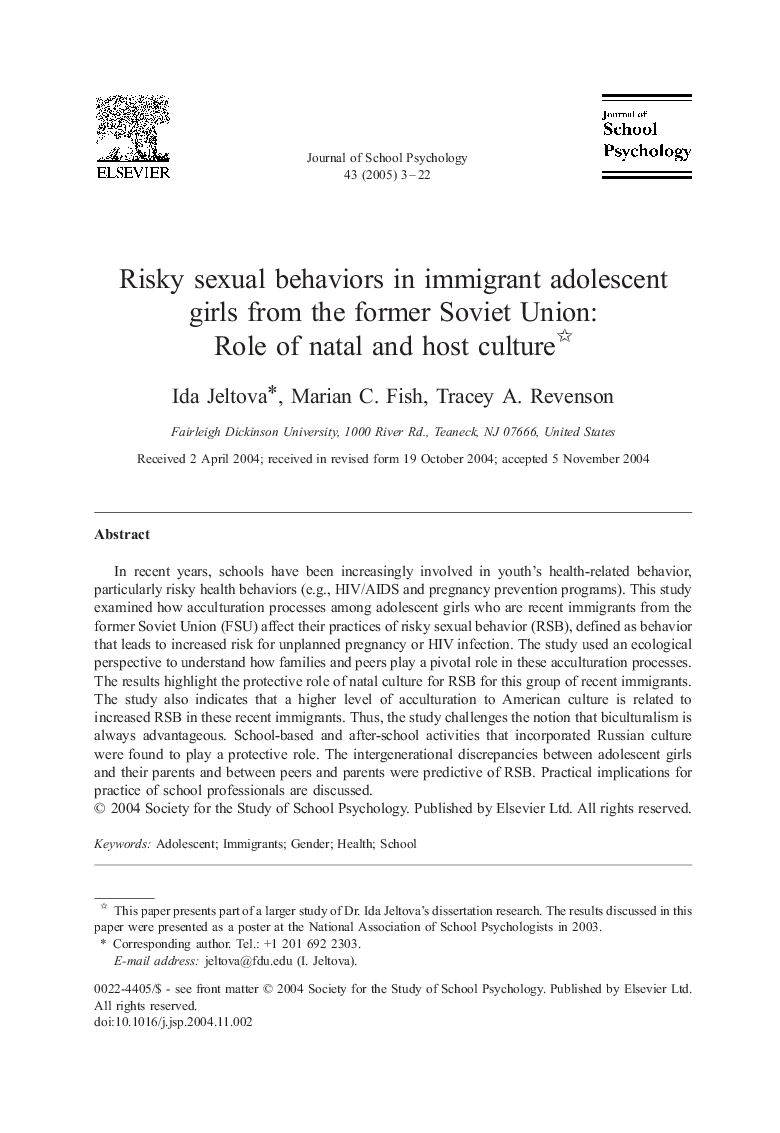| Article ID | Journal | Published Year | Pages | File Type |
|---|---|---|---|---|
| 10315278 | Journal of School Psychology | 2005 | 20 Pages |
Abstract
In recent years, schools have been increasingly involved in youth's health-related behavior, particularly risky health behaviors (e.g., HIV/AIDS and pregnancy prevention programs). This study examined how acculturation processes among adolescent girls who are recent immigrants from the former Soviet Union (FSU) affect their practices of risky sexual behavior (RSB), defined as behavior that leads to increased risk for unplanned pregnancy or HIV infection. The study used an ecological perspective to understand how families and peers play a pivotal role in these acculturation processes. The results highlight the protective role of natal culture for RSB for this group of recent immigrants. The study also indicates that a higher level of acculturation to American culture is related to increased RSB in these recent immigrants. Thus, the study challenges the notion that biculturalism is always advantageous. School-based and after-school activities that incorporated Russian culture were found to play a protective role. The intergenerational discrepancies between adolescent girls and their parents and between peers and parents were predictive of RSB. Practical implications for practice of school professionals are discussed.
Related Topics
Social Sciences and Humanities
Psychology
Applied Psychology
Authors
Ida Jeltova, Marian C. Fish, Tracey A. Revenson,
